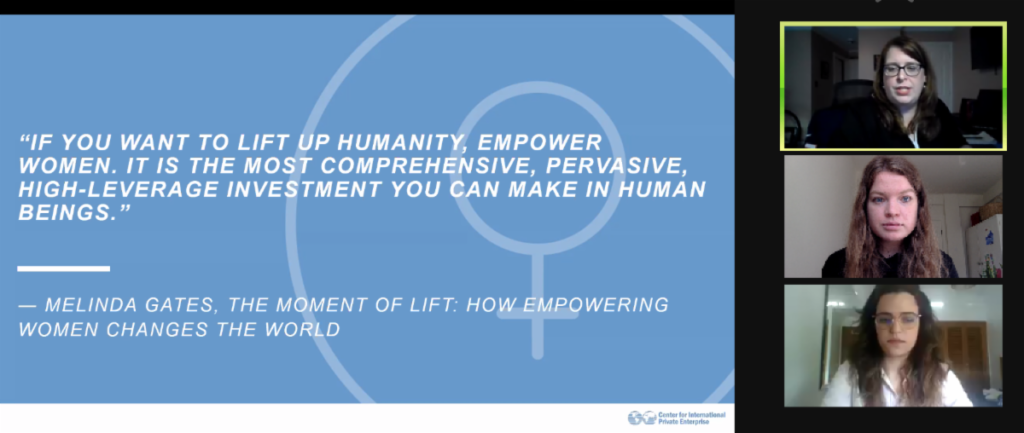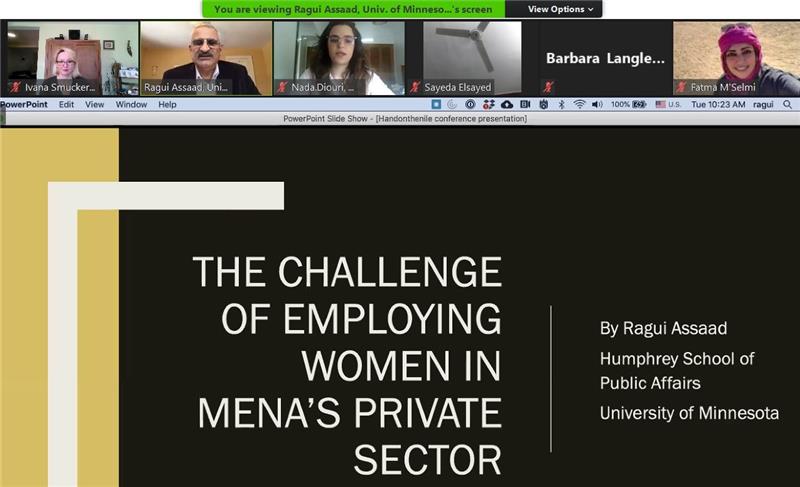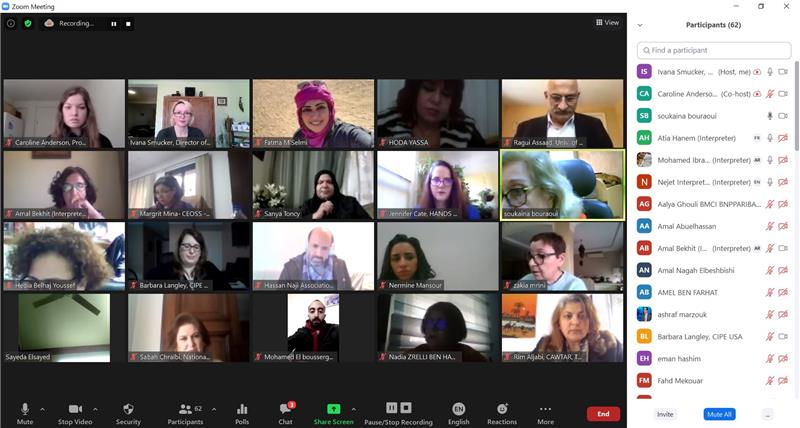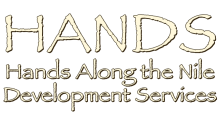The gender economic inequality that persists throughout the Middle East and North Africa (MENA) region and all around the globe is not only unjust, but it also remains a source of untapped economic opportunity. According to a McKinsey study, closing the gender gap in the economy would add $28 trillion to global GDP by 2025. In the MENA region alone, $2.7 trillion dollars would be added. Gender equity is important not only for the sake of equality but also for economic opportunity. Businesses, governments, and civil society must take concrete steps to ensure equal and full participation of women in the economy. It is imperative that different sectors of society work more closely together to address this issue.

With this in mind, together with our partners CEOSS in Egypt, CAWTAR in Tunisia, and Association Ennakhil in Morocco, HANDS implemented a virtual, multi-day conference in early March that focused on ways to support a more active role for the private sector in advocating for women’s economic empowerment in the MENA region.

Over the course of several days, gender equality champions in the private sector, government, and civil society took part in panels addressing topics such as: the current economic situation of women in the MENA region, particularly in the private sector (with a focus on Egypt, Tunisia, and Morocco), biggest priorities and opportunities for women’s inclusion in the private sector, including those in traditionally male dominated sectors, how to make a better business case for gender equality, and ways the government, private sector, and NGOs can cooperate to make positive changes more efficiently.
The four-day program included thought-provoking discussions, engaged high-quality speakers and participants, and provided opportunities to put some of their thoughts into concrete action. After the first two days of panel discussions, the second part of the program involved participatory discussions of practical steps to take towards gender parity. Four working groups aimed to further define priorities and opportunities, and recommended tools, strategies, and means for cooperation. Their recommendations and ideas will be summarized in a regional framework document aimed to enhance the role of the MENA region’s private sector in driving the economic inclusion and equality of women.

This regional conference was one segment of a multi-year program HANDS is implementing focused on increasing the private sector’s role in promoting women’s economic opportunity and equality in the MENA region. Our local partners will now continue to work with the gender champions in their countries to further expand the number of private sector companies implementing concrete steps towards more equitable inclusion of women, while also engaging in networking and cooperation with counterparts from other sectors, such as civil society and government.
Click here to see the conference agenda, and here for the full list of speakers and panelists.
Below is a video summary of several panelists discussing some of the key topics during the first two days of the conference:
This conference was part of a regional project “Activating the Private Sector for Women’s Economic Rights in Egypt, Morocco and Tunisia,” made possible by the United Nations Democracy Fund and implemented by Hands Along the Nile (HANDS) and regional partners: CEOSS from Egypt, CAWTAR from Tunisia, and Association Ennakhil from Morocco.


No Comments to "The Private Sector: A Crucial Ally in the Quest for Women’s Economic Empowerment in the MENA Region"